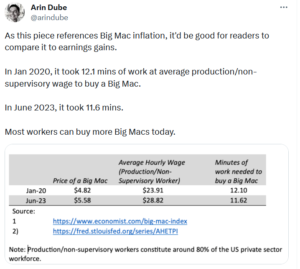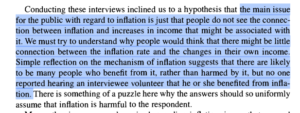I tend to think suggestions of widespread trauma are overdone but maybe I’m too skeptical. Ana Marie Cox makes sense in “We Are Not Just Polarized. We Are Traumatized.“:
What if our entire national character is a trauma response?
Before you say “bullshit,” remember: Cynicism is a trauma response…
Collective trauma, [Kai Ericson] wrote, means “a blow to the basic tissues of social life that damages the bonds attaching people together and impairs the prevailing sense of communality.” Collective trauma happens in slow motion, “A form of shock all the same…. ‘I’ continue to exist, though damaged and maybe even permanently changed. ‘You’ continue to exist, though distant and hard to relate to. But ‘we’ no longer exist as a connected pair or as linked cells in a larger communal body.”
In other words, the defining characteristic of collective trauma—and what makes it almost impossible to self-diagnose—is that people who have been through it no longer believe in the integrity of their community.
Paul Schofield, Liberals shouldn’t scoff at people’s fears of homelessness and crime:
Many cities around the United States with significant homeless populations also have large numbers of low-income renters, people of color and immigrants. Because these groups are less likely to have resources to buy their way out of a troubled neighborhood, they end up being the people whose kids are harassed by people under the influence of drugs on the way to school, the ones whose doorsteps are defecated on and the ones whose sidewalks are made impassible by tents and trash. They are the ones whose stores close early to avoid being stolen from, and whose eateries move to the other side of town. To shrug this off, or to dismiss it as mere conservative propaganda, is profoundly unprogressive.
Jeff Stein and Taylor Lorenz, The viral $16 McDonald’s meal that may explain voter anger at Biden:
Even though he had ordered a novelty item, Olive’s video about a $16 McDonald’s order went viral, racking up hundreds of thousands of views… Inflation, the theory went, had gotten so out of control that the price of a fast-food burger was approaching $20… The average Big Mac nationally as of this summer cost $5.58, up from $4.89 — or roughly 70 cents — before Biden took office, according to an index maintained by the Economist. That’s up more than 10 percent, but it’s not $16. And yet one anomalous price from one store in Idaho 11 months ago was ripping through people’s social media feeds as if it explained the entire economy.
If you earn average blue-collar wage, it takes less time to earn enough money to buy a Big Mac in 2023 than it did in 2020.
Robert Shiller (from 1997), Why Do People Dislike Inflation?
Roughly speaking, interviewees felt that wage increases were earned independent of inflationary environment. They didn’t think that inflation was part of the reason their wages increased as much as they did.
On the Lighter Side




